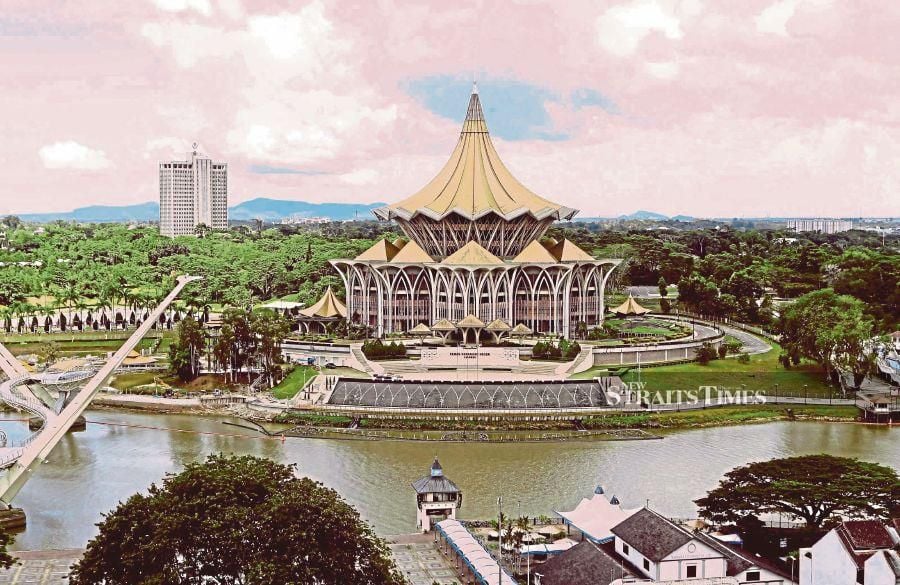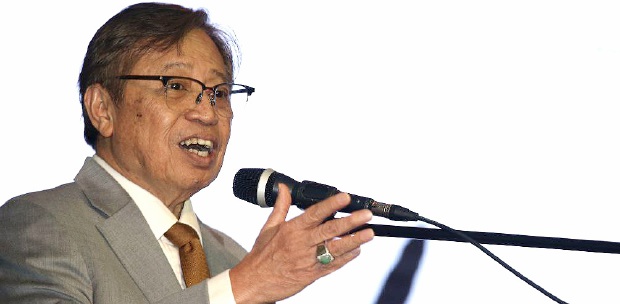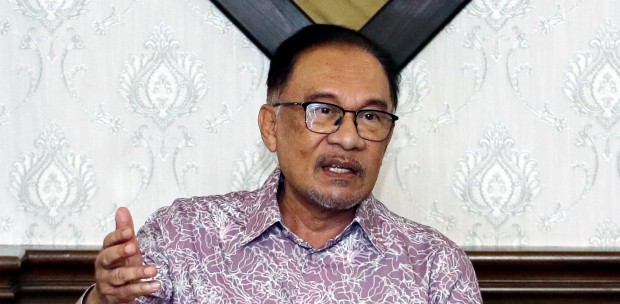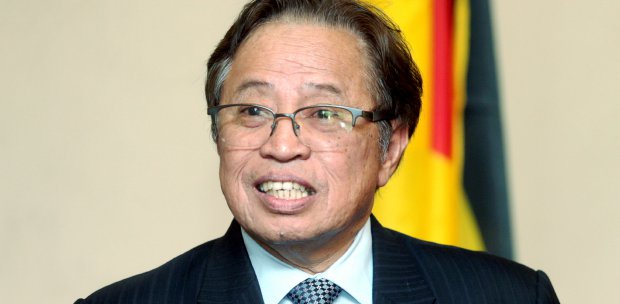Sarawak Premier Tan Sri Abang Johari Openg has apparently unveiled the last of his own trio of initiatives to give Sarawak greater control of its own economic destiny.
The earlier two are apparently taking back from the federal government control of Bintulu Port and buying MasWings and turning it into Sarawak's own "boutique" airline. Both are in the process of becoming reality.
The third leg is Abang Johari's confirmation this week that the Sarawak government is in negotiations to take a sizable "block" share in Affin Bank, the ostensible reason being that it can support the growth of small and medium enterprises (SMEs) in the state.
The premier says a commercial bank is the "missing link" to complete the mix of ingredients for the state economy to move forward.
There seems to be a general consensus among key personalities in the policy, finance industry, and business elites in the state whom this writer spoke to that the banking move is a laudable step.
Sarawak-born former UBS fund manager based in Singapore, Gerald Leong, believes the bank move will be a truly strategic decision if utilised to fine-tune policies on credit expansion in the state as well as to insulate Sarawak from the economic vagaries buffeting the nation.
There is, however, some misgiving that, given Sarawak's grand economic ambitions, the state government did not target a larger banking entity than Affin Bank.
Perhaps it is a question of striking a deal when an opportunity presents itself and seeking to eventually grow the bank organically.
Leong noted that Sarawak used to be the thriving home ground for quite a few home-grown commercial banks, such as Bank Utama, Hock Hua Bank, Kwong Yik Bank, and Wah Tat Bank.
All these disappeared when absorbed into bigger entities during a major merger exercise enforced by the government under Tun Dr. Mahathir Mohamad's first tenure.
Leong also said that the late Dr. Wee Cho Yaw, a banking legend in Singapore, who died just last week, was the son of a banking pioneer from Kuching, the late Datuk Wee Kheng Chiang, who opened the Bian Chiang Bank in Kuching and the United Chinese Bank in Singapore.
Wee the son grew the Singapore bank into the behemoth UOB Bank, which today has a bigger capitalisation than Deutsche Bank, Europe's largest commercial bank.
There is therefore no question that Sarawak has what it takes in terms of entrepreneurial talents to help drive its economy to a higher plane, perhaps spearheaded by a commercial bank part-controlled by the state government.
Leong further noted that it should be possible for Sarawak, with its vast economic and natural resources, to provide all its three million people with a decent standard of living quite effortlessly. An example and model may be neighbouring Brunei.
Sarawak's next-door neighbour has extensive leeway to chart its own economic destiny as an independent sultanate with its own currency tied to the Singapore dollar, its own airline, and its own port at Muara.
Bintulu Port promises to be the nucleus for the Sarawak Ports Authority slated to be established. The new Sarawak airline should put the state on the map in much the same way Royal Brunei Airlines does for the sultanate.
With luck, a commercial bank will become the catalyst for hoped-for credit policy flexibility to sustain the state's growth momentum. With the three overarching economic pillars in place, all that remains is for the state authorities to ensure that all prudential steps are in place to let professional managers take over.
There is, without doubt, a groundswell of popular support for all that the Sarawak government is doing to put its economy on a firmer footing. Equally, there is also no question that Sarawak's gain will ultimately be the nation's as well.
*The writer views developments in the nation, region, and wider world from his vantage point in Kuching.






